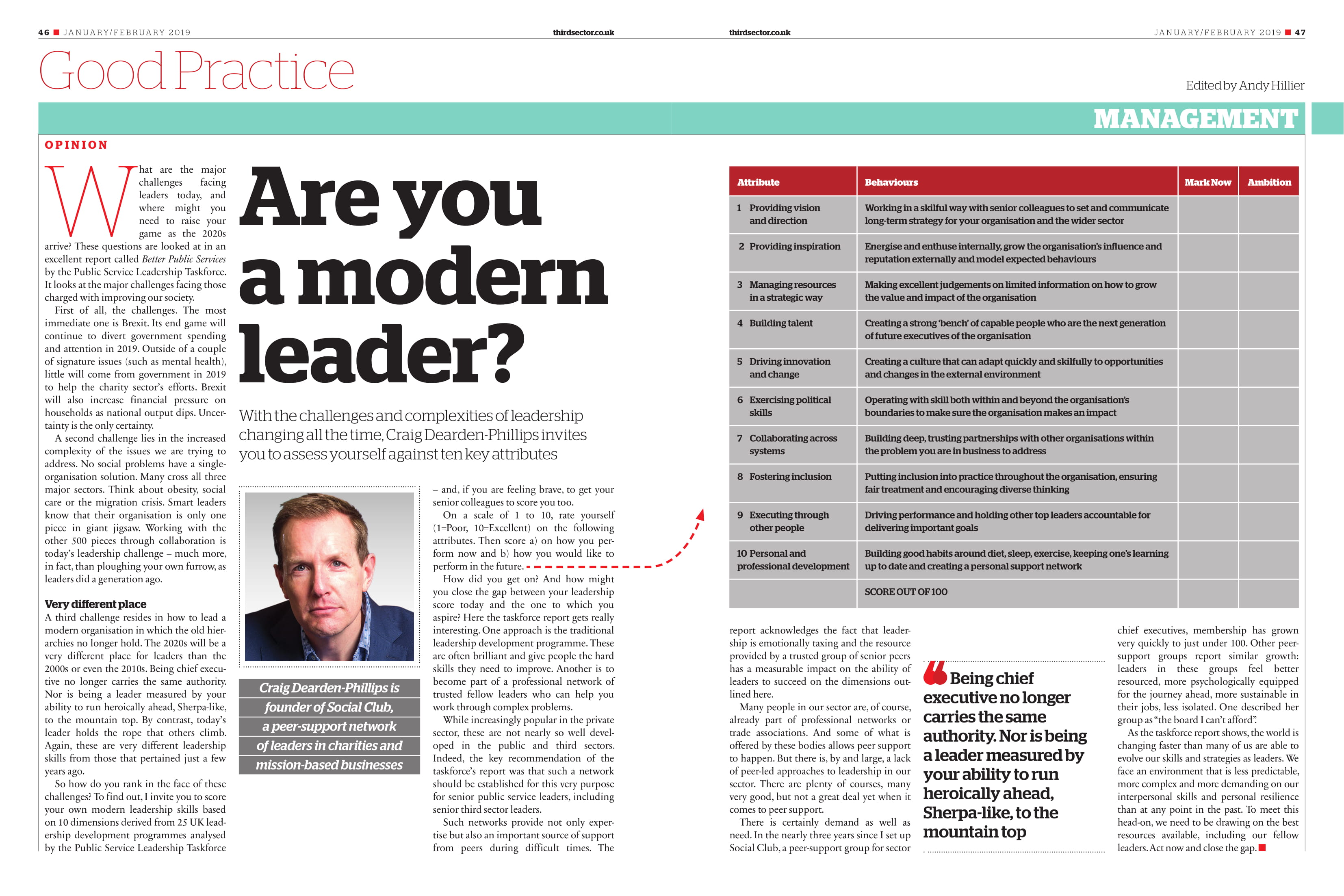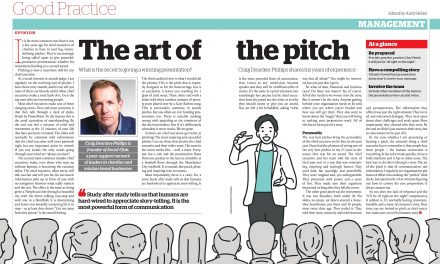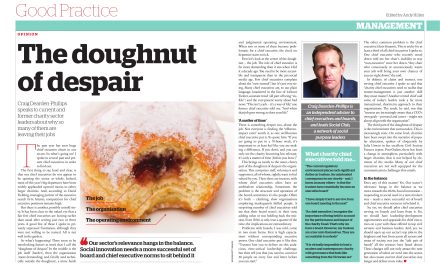With the challenges and complexities of leadership changing all the time, Craig Dearden-Phillips invites you to assess yourself against ten key attributes
What are the major challenges facing leaders today, and where might you need to raise your game as the 2020s arrive?
These questions are looked at in an excellent report called Better Public Services by the Public Service Leadership Taskforce. It looks at the major challenges facing those charged with improving our society.
First of all, the challenges. The most immediate one is Brexit. Its end game will continue to divert government spending and attention in 2019. Outside of a couple of signature issues (such as mental health), little will come from government in 2019 to help the charity sector’s efforts. Brexit will also increase financial pressure on households as national output dips. Uncertainty is the only certainty.
A second challenge lies in the increased complexity of the issues we are trying to address. No social problems have a single-organisation solution. Many cross all three major sectors. Think about obesity, social care or the migration crisis. Smart leaders know that their organisation is only one piece in giant jigsaw. Working with the other 500 pieces through collaboration is today’s leadership challenge – much more, in fact, than ploughing your own furrow, as leaders did a generation ago.
Very different place
A third challenge resides in how to lead a modern organisation in which the old hierarchies no longer hold. The 2020s will be a very different place for leaders than the 2000s or even the 2010s. Being chief executive no longer carries the same authority. Nor is being a leader measured by your ability to run heroically ahead, Sherpa-like, to the mountain top. By contrast, today’s leader holds the rope that others climb. Again, these are very different leadership skills from those that pertained just a few years ago.
So how do you rank in the face of these challenges? To find out, I invite you to score your own modern leadership skills based on 10 dimensions derived from 25 UK leadership development programmes analysed by the Public Service Leadership Taskforce – and, if you are feeling brave, to get your senior colleagues to score you too.
How did you get on? And how might you close the gap between your leadership score today and the one to which you aspire? Here the taskforce report gets really interesting. One approach is the traditional leadership development programme. These are often brilliant and give people the hard skills they need to improve. Another is to become part of a professional network of trusted fellow leaders who can help you work through complex problems.
While increasingly popular in the private sector, these are not nearly so well developed in the public and third sectors.
Indeed, the key recommendation of the taskforce’s report was that such a network should be established for this very purpose for senior public service leaders, including senior third sector leaders.
Such networks provide not only expertise but also an important source of support from peers during difficult times. The report acknowledges the fact that leadership is emotionally taxing and the resource provided by a trusted group of senior peers has a measurable impact on the ability of leaders to succeed on the dimensions outlined here.
Being chief executive no longer carries the same authority. Nor is being a leader measured by your ability to run herocially ahead, Sherpa-like, to the mountain top
Many people in our sector are, of course, already part of professional networks or trade associations. And some of what is offered by these bodies allows peer support to happen. But there is, by and large, a lack of peer-led approaches to leadership in our sector. There are plenty of courses, many very good, but not a great deal yet when it comes to peer support.
There is certainly demand as well as need. In the nearly three years since I set up Social Club, a peer-support group for sector chief executives, membership has grown very quickly to just under 100. Other peer-support groups report similar growth: leaders in these groups feel better resourced, more psychologically equipped for the journey ahead, more sustainable in their jobs, less isolated. One described her group as “the board I can’t afford”.
As the taskforce report shows, the world is changing faster than many of us are able to evolve our skills and strategies as leaders. We face an environment that is less predictable, more complex and more demanding on our interpersonal skills and personal resilience than at any point in the past. To meet this head-on, we need to be drawing on the best resources available, including our fellow leaders. Act now and close the gap.

Craig Dearden-Phillips is founder of Social Club, a peer-support network of leaders in charities and mission-based businesses
The Article




Recent Comments